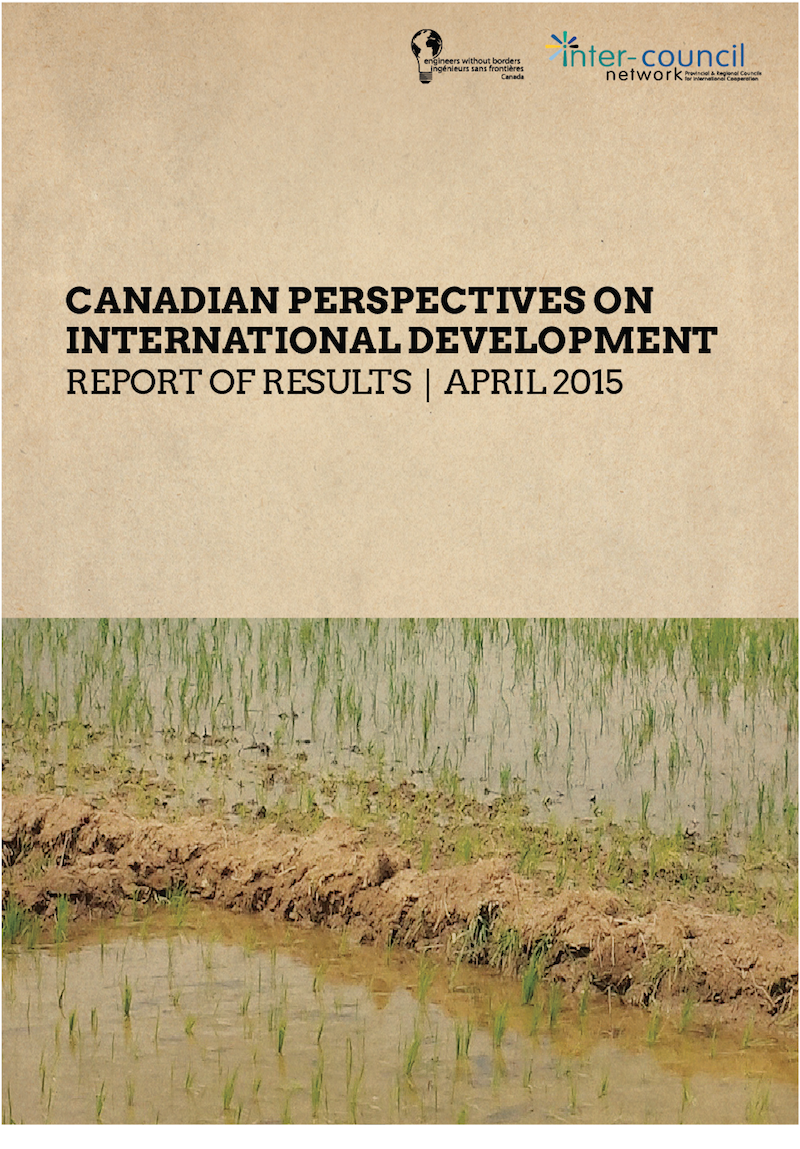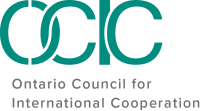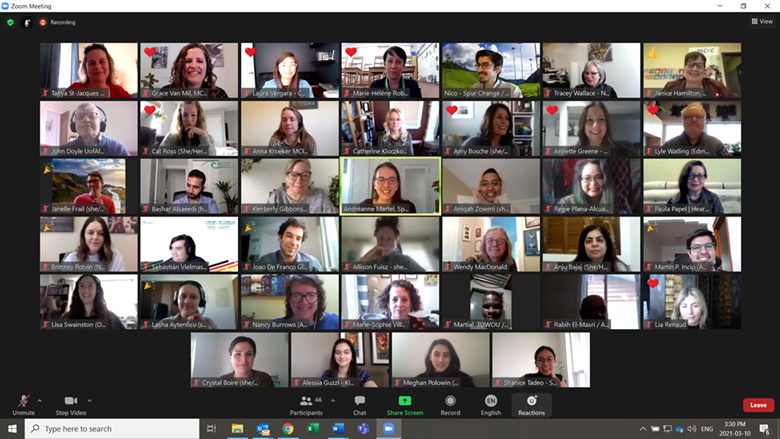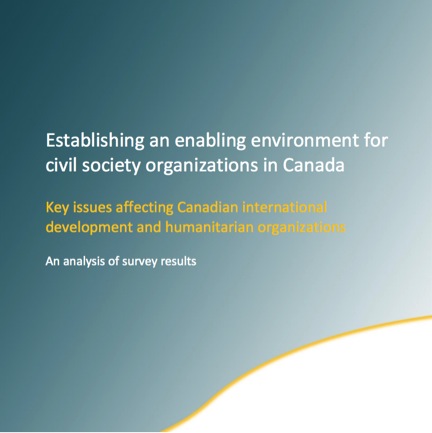
Canadian Perspectives on International Development Report on Results
Click Here to Read the Full Report and Findings
OCIC is pleased to share the ‘Canadian Perspectives on International Development Report of Results’ produced by Engineers Without Borders Canada (EWB) in partnership with the Inter-Council Network of Provincial and Regional Councils for International Cooperation (ICN), and the Bill and Melinda Gates Foundation.
This public opinion poll was commissioned to gain an understanding of Canadians’ knowledge of, opinions on, and engagement in global poverty issues in 2015. It builds on similar polls conducted in Canada, such as the 2012 Canadian Engagement in Global Poverty Issues poll by the ICN, and those conducted in other G7 countries through The Bill and Melinda Gates Foundation’s Narrative Project.
Main Findings
- There is a national consciousness in Canada about global poverty reduction, with 94% of Canadians saying it is important to improve health, education and economic opportunity for the world’s poorest, and 76% of Canadians agreeing we have a moral obligation to help expand health, education, and economic opportunity for the world’s poorest.
- Most Canadians are optimistic about our world’s future, as the majority believe that conditions in the poorest countries will improve in the next 15 years and that both the government and individuals can play a role in reducing global poverty.
- Canadians want their government to take a leadership role in global poverty reduction, with 62% of Canadians agreeing that Canada should be one of the leading countries in providing international development.
- Canadians have a good grasp of how much the government currently spends on foreign aid, and 46% believe the government should spend more.
- The Government of Canada can – and should – enhance the country’s leadership role in addressing global poverty by aspiring to surpass Canada’s 2010 Official Development Assistance (ODA) levels of 0.34% of gross national income (GNI) before the end of the 42nd Parliament, as a step toward meeting the United Nations’ target of committing 0.7%.
To learn more about the full report, click here.









